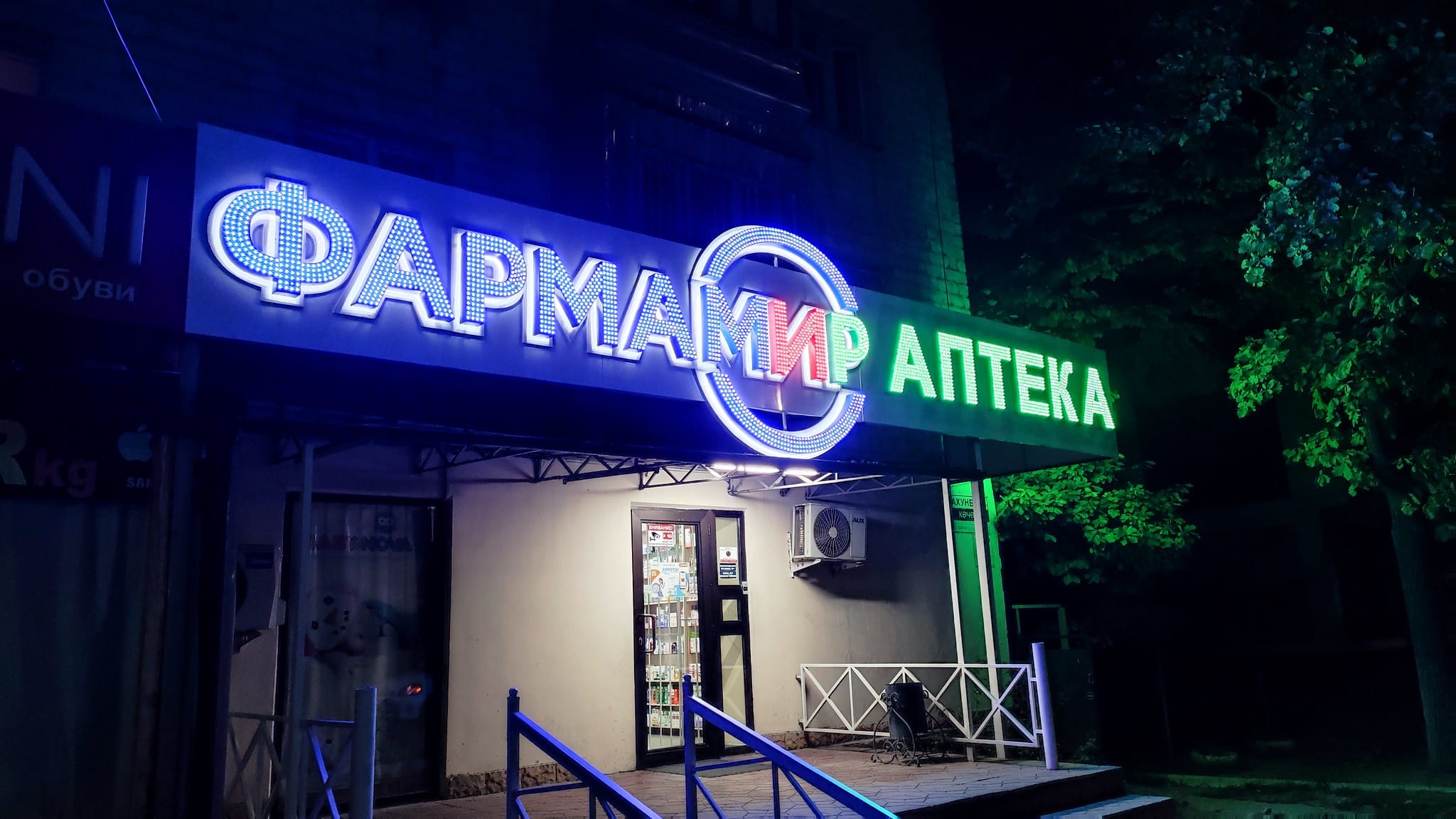Healthcare abroad is often different from what we’ve experienced at home. How doctors and homestay facilitators may react to certain illnesses is different. Medicines and procedures that can be prescribed by doctors are often different. Over-the-counter brands that can be recommended by pharmacists are often different. Home remedies offered by friends or homestay facilitators can seem downright magical – but often work.
In all SRAS locations, SRAS offers its students translation assistance if they require healthcare while on one of our programs. Additionally, in most locations, doctors and pharmacists are available that speak either English or Russian as second languages. The resource below is provided to assist students in understanding the Russian they may hear when seeking healthcare abroad.
Treating Common Illnesses: Russian Vocabulary
Hopefully, students coming abroad will not face any проблемы со здоровьем (health problems), but this might happen. Students then need to лечиться (treat (that illness)). They may need записаться на прием к врачу (to make an appointment with a doctor) and сходить к врачу (to go to see the doctor). Often, a first visit to the doctor starts with seeing a терапевт (general practitioner).
All students on SRAS programs abroad will have медицинское страхование (medical insurance) either through SRAS, their school, or sometimes their own private provider if they choose. Some clinics abroad can accept this insurance directly. In any case, students should keep any квитанции и документация (receipts and documentation) for their records in case they need to file a claim later.
Doctors and Pharmacies
In a кабинет врача (doctor’s office) the пациент (patient) is often first asked “На что жалуетесь?” (“What is bothering you?”). The patient can say “Я плохо себя чувствую” (‘I am not feeling well’), and then elaborate – “У меня болит голова/живот/горло” (‘I have a headache/stomachache/sore throat’), or “У меня сильная простуда” (“I have a bad cold”). Perhaps the patient will have something that often affects people who have just traveled long distances and say, “У меня расстройство желудка и диарея” (“I have an upset stomach and diarrhea”).
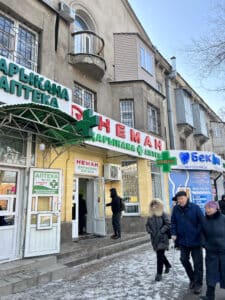
The doctor will осмотрит больного (examine the sick person) and usually выпишет лекарства/терапию (prescribe some medicine/treatment).
Medicine often has to be taken до еды (before meals) or после еды (after meals). Most medicine is regimented as well, for example, по одной таблетке три раза в день (one tablet three times a day).
Some medications will require a рецепт (prescription). These might include антибиотики (antibiotics) or противовирусные препараты (antiviral medications).
Many treatments will involve medicines that are продаваемые без рецепта (over-the-counter) and do not require prescriptions. От головной боли (for headaches), the doctor can prescribe анальгетики (painkillers). Чтобы сбить температуру (to bring down a temperature), аспирин (aspirin) is often prescribed.
In many locations, medicines, whether prescription or over-the-counter, will need to procured from an аптека (pharmacy). Medicines are not available in most grocery stores as they are in the US. Some medications will have побочные явления (side effects) as these should be understood fully before taking the medicine.
If a person has грипп (the flu), he/she can be recommended to try such as парацетамол (Paracetamol) or колдрекс (Coldrex), which are both brands common in many SRAS locations.
For treating diarrhea, one can dissolve two or three small crystals of марганцовка (potassium permanganate) in a half liter of water to produce a dark pink, but not violet, solution. One glass is drank in the morning and another at night. Usually, only two doses are prescribed. Another common over-the-counter stomach treatment is Энтеросгель. A heaping tablespoon of the thick, grainy gel is taken by mouth. It is designed to expand to clear the stomach and intestines as it moves through your system.
Doctors in this part of the world will often also prescribe витамины (vitamins) to aid healing or recovery. They might also request that certain foods be eaten with the medicine prescribed. For instance, антибиотики (antibiotics) might be followed with a spoonful or two or sour cream, which acts as a пробиотик (probiotic) and can alleviate the upset stomach that antibiotics might cause.
Dentistry
To prevent cavities, dentists around the world recommend that you come in for regular гигиеническая чистка зубов (hygienic teeth cleaning), also sometimes referred to in Russian as a профессиональная чистка зубов (professional cleaning). Some foreign visitors to стоматологическая клиника (dentist offices) in Russian-speaking areas of the world may be surprised that медсестра надевает маску пациенту (the nurse will put a mask on the patient) before обдувка песком (sandblasting), a common method to clean teeth in many parts of Europe, the Caucasus, and Central Asia. Before this process, the area will undergo обезболивание/анестезия с помощью геля (anaesthetization by means of a gel) as it can be uncomfortable for the patient. Some bleeding after the procedure is normal.
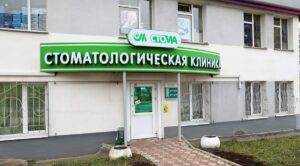
If you have зубная боль (a toothache), you will need to get лечение зубов (dental treatment). A dentist office is most often known in Russian as a стоматологическая клиника (dental clinic). They come in many forms from the государственная клиника (state clinic) which is generally known for бесплатные услуги (free services) for local citizens to a частная клиника (private clinic). In many places, these private clinics are more often associated with лечение по мировым стандартам (treatment according to international standards) and usually for более высокие цены (higher prices).
Prior to лечение (treatment), стоматолог (a dentist) обследует зубы (examines your teeth) to find the дупло (cavity), or any other problems, such as налет (plaque) or зубной камень (tartar). A больной зуб (painful tooth) will have the area around it undergo обезболивание/анестезия с помощью укола (anaesthetization by means of injection). Once the участок зуба (tooth area) замораживается (is anaesthetized), the стоматолог (dentist) can удалять нерв (extract the nerve) and очищать кариозную полость (clean out the decaying cavity).
While the стоматолог очищает зубную полость (dentist cleans out the tooth cavity), a медсестра (nurse) applies a вакуумная воздуходувка (suction; literally a ‘vacuum blast engine’) to откачивание слюны (pump out saliva).
It is possible, especially at state clinics, for a временная пломба (temporary filling) to be put into the cavity for a day or two, then она заменяется постоянной пломбой (it is replaced with a permanent filling). After установка пломбы (installing a filling), it is шлифуется (polished).
When a зуб (tooth) невозможно вылечить (is impossible to cure), it is удаляется (extracted) or вырывается (pulled out), using зубные щипцы (dental forceps).
If a student abroad has to find лечение зубов (dental treatment), whether using государственная клиника (a state clinic) or частная клиника (a private clinic), they will probably find the service just as effective and much less expensive (if paid for out of pocket) than similar services in the US although it may come a bit of культурный шок (culture shock).
Home Treatments
There are many гомеопатическое лечение (homeopathic treatments) and народные средства (folk remedies) for different illnesses which might be new to students.
As in many countries, чай (tea) is a common treatment for many illnesses. Sometimes these are regular teas and sometimes can be отвары (brews; medicinal teas) from специи, травы или другие ингредиенты (spices, herbs, or other ingredients).
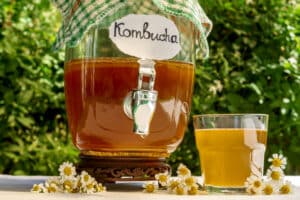
To treat some stomach ailments, чайный гриб (kombucha; lit: mushroom tea). Is sometimes used. While the drink is a relatively new fad in America, it has been known for centuries in much of Eurasia, including most SRAS locations.
For insomnia or stress, natural успокоительные средства (sedatives), such as мед (honey), молоко (milk), ромашка (chamomile), тмин (caraway), имбирь (ginger), and шалфей (sage) can act as снотворные (soporifics, or drugs that induce sleep or calm). These might not be taken as drinks, but simply added to food.
Many of these same ingredients are used for treating sore throats and colds. Hot drinks with ginger, lemon, and/or honey can be seen as the chicken noodle soups of this geographic area. They дезинфицируют (disinfect) the throat, укрепляют иммунную систему (boost the immune system), as well as calm the mind.
Also common are полоскание (gargles). The simplest of these contains 1 teaspoonful of salt per glass of water for a gargle every thirty minutes. This also disinfects the throat. One can also add one or two drops of iodine to the solution to make it stronger. Or, herbs might be boiled – sage or chamomile which also have antibacterial properties – and used as a warm gargles after they have cooled somewhat.
There are more экзотические средства (exotic remedies) as well. Some locals might recommend a shot of vodka, or even водка с добавлением перца (vodka with pepper added) which definitely disinfects the throats and shocks the system. Hot milk with honey (generally two tablespoons of honey per glass of milk) is often recommended as a way to sooth the throat although the milk can act as a bacterial agent and thus might not be advisable.
Some might suggest a йодная сетка (iodine net, sometimes refered to as “iodine painting” in English). This involves iodine being used to make a crisscross pattern across the throat, usually before sleep. The idea is that the iodine will draw out some inflamation from the throat to improve breathing and comfort.
Some might also suggest that you массировать грудь (apply a chest rub). Горчица (mustard) is commonly used for this as a sort of Vicks VapoRub – it creates a sensation of heat on the chest and creates fumes meant to clear the sinuses. For this, “Russian mustard,” which is strong, brown, and thick is usually used. One can also buy горчичники (mustard plasters) in some pharmacies – which are essentially ground mustard seeds in large tea bags. They are heated and used as compresses. However, one should be careful with this as, if applied too strongly and/or for too long, it can burn the skin.
Another, rarer, but still found suggestion would be to rub сало (lard) on one’s chest. We are not sure what this does besides give you a really good story to take home.
One last folk treatment we will mention is used for headaches. Folk wisdom says that you may crumple a fresh капустный лист (cabbage leaf) and affix it to your forehead and/or temples with a bandage. Another might be applied to the back of the neck. Cabbage is rich in ионы кальция (calcium ions) that can normalize the blood vessels under the skin, causing many types of headaches to be alleviated.
Seek Treatment, Use Common Sense
Students seeking healthcare abroad should ideally check with their insurance to see which providers are recommended before visiting a doctor. They should also be prepared for culture shock within the medical system. Medicine differs abroad – often it is just as effective and can be even more effective – it’s just that recommended procedures and treatments can vary. As in any medical situation, make sure that you discuss and understand your treatment options with your doctor and voice any concerns you may have early on. Students on SRAS programs can always consult with their program coordinator, who can also accompany the student to a clinic to assist with translation and making sure everything is understood.
You’ll Also Love
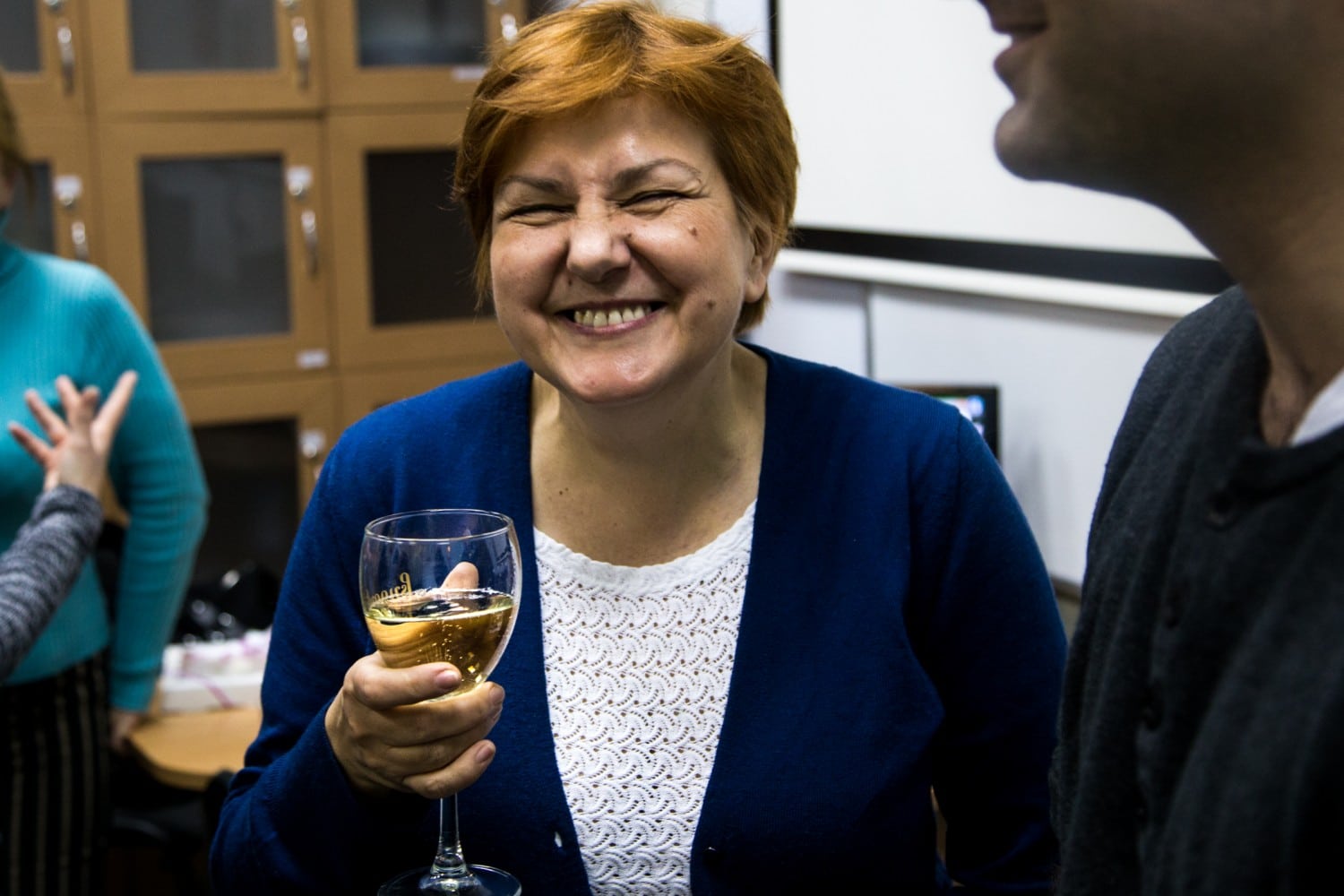
International Women’s Day: Local Culture and Celebrations
International Women’s Day was first celebrated in St. Petersburg in 1913, declared by activists there and celebrated with rallies that demanded more rights. It did not become an official state holiday and day off, however, until 1965. In that year, March 8th was chosen as it marked the day when, in 1917, women again marched […]
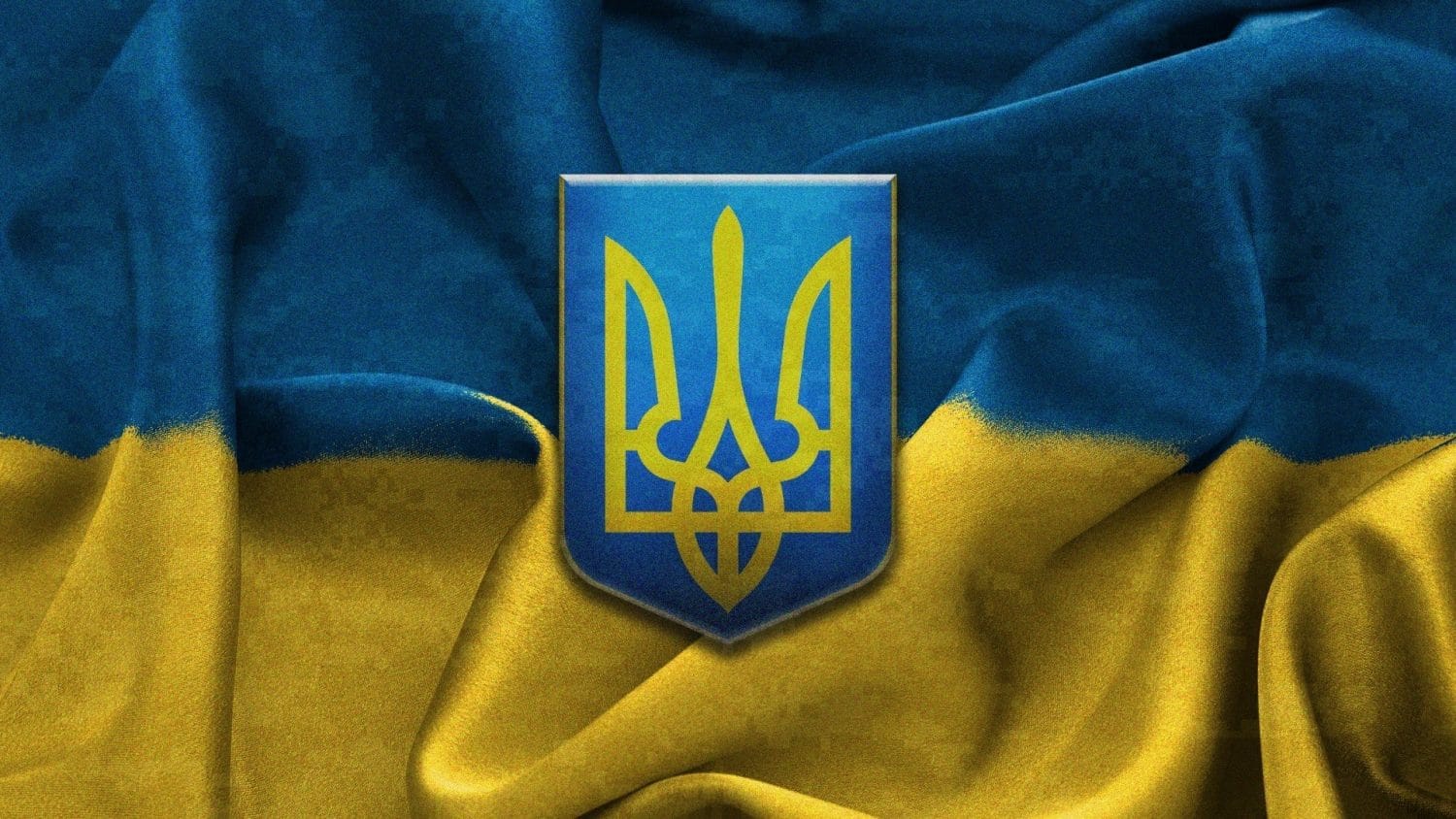
Ukrainian for Russian Speakers
The following is a short Russian MiniLesson concentrating on the differences between Russian and Ukrainian. Words and phrases below (but not letters) shown in bold have annotation. Just hover your cursor over the text to see the annotation. Interested in really expanding your knowledge of the Ukrainian language? For a deeper learning experience, see these […]

Russian Vocabulary about Russian Literature
Russian literature uses the same forms and structures as well as literary and poetic devices as other great Western literature. One can find in Russian literature fiction and nonfiction, novels, short stories, and poems, all containing narrative structure, metaphor, simile, metonymy, and other common devices. Thus, Russian literature can be analyzed with many of the […]
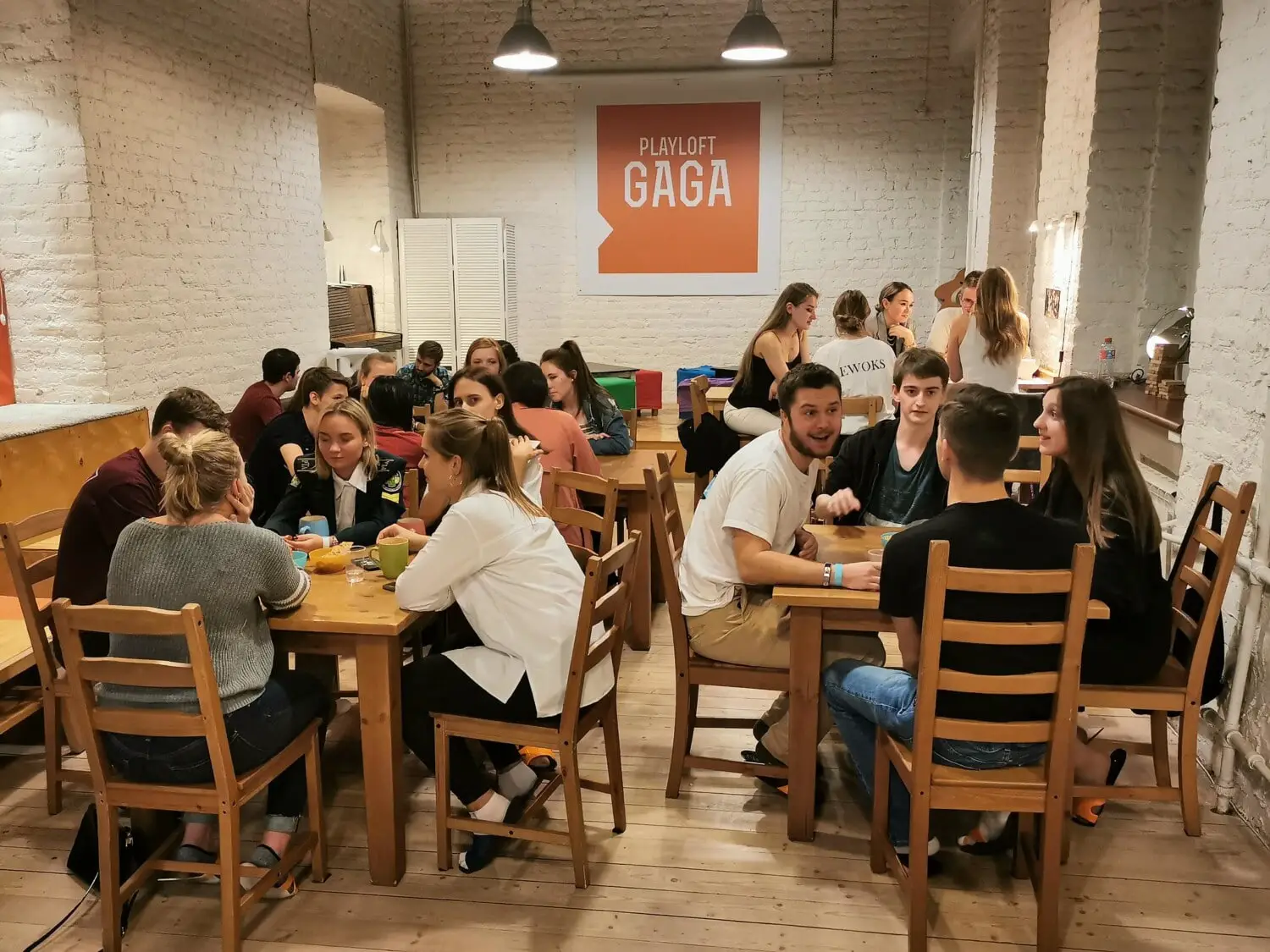
Addressing Strangers in Russian: Building Russian Vocabulary
The following bilingual Russian MiniLesson is meant to build your vocabulary by providing Russian phrases within English text. Hover over the bold Russian to reveal its English translation. When addressing strangers in Russia, it is important to maintain an appropriate level of politeness. The address should be in a formal manner, a person should apologize […]

Halloween as a Case Study for Cultural Understanding
Halloween is seen around the world as an American holiday. While it has gained more global popularity in recent years, it is still really only celebrated in the US, the UK, and Canada. In most other countries, including most Slavic countries, it is regarded at most as a reason to host costume parties or perhaps […]

